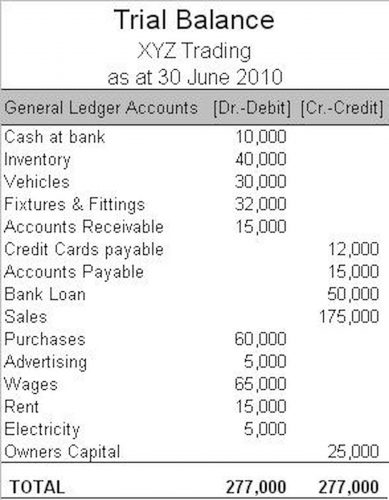
There are often manual processes that are required to be completed and are more prone to human error. Our experts reveal tips, challenges and best practices of SAP integrations, helping you unlock its full potential. Use this template to organize supplier audit information, quickly create and assign audit tasks to the right people, and track their progress.
Provide Onboarding Vendors with a Form or Self-Service Portal

During onboarding, you need to verify the accuracy and authenticity of the vendor data before feeding it into your system. Vendor validation involves reviewing a vendor’s background information to qualify or dismiss them as potential business partners. Vendor validation is quite a process, one that needs to be documented and monitored at every step.

Service tickets
With GDPR, anti-money laundering (AML) laws, and industry-specific regulations, businesses must ensure that vendor data is accurate, secure, and auditable. ClickUp’s dedicated, user-friendly, Mental Health Billing and customizable templates for vendor management make handling things from vendor lists to order forms hassle-free. They encourage you to easily manage and track multiple vendors, contracts, and orders. Additionally, it enables you to identify and follow trends for key metrics like delivery times, gain insight into vendor performance, pinpoint areas for improvement, and provide constructive feedback to vendors.
Instant invoice data capture
An efficient Supplier MDM system enables businesses to manage their supplier relationships more effectively. By providing a unified view of supplier data, it allows for easier performance tracking, contract management, and even supplier self-service access to specific data types. This not only saves costs but also enhances efficiency across the entire supply chain. In this article, we’ll talk about vendor master file best practices to provide you with practical strategies to enhance your supplier management processes, reduce operational risks, and achieve a competitive edge in your market.
- It is a complete master record of your suppliers used by the accounts payable department, especially when making payments.
- It helps to ensure compliance with statuary requirements and allows visibility to the vendors for better management of terms, rebates and total spend.
- Further, the avoidance of erroneous and / or duplicate payments prevents the organization’s dollars from sitting in the vendors’ accounts and will minimize profit leakage.
- Effective vendor management involves actively monitoring and assessing vendor performance to ensure that vendors meet their obligations and deliver value.
- This template allows you to record, organize, and store important information in a centralized place without wasting time going through different old spreadsheets.
- Use an MDM system or a dedicated vendor management platform to create a single source of truth for all supplier data.
Manage Vendor and Procurement Processes Efficiently With ClickUp
For instance, most high-functional restaurants use vendor master data to automatically restock ingredients for the future. Additionally, it helps you maintain accurate financial records of your suppliers with updated payment terms to avoid late fees. Above all, you get the option to keep your data secured by providing master vendor management limited access to sensitive data to some key authorities in your company.

In many cases, as a requirements scale, better supplier alternatives are also available as long as the understanding of relationship is maintained. Expectation mismatches and uncertain volume requirements can https://duraprinting.com/5-dealership-accounting-processes-to-consider/ easily to lead clouded judgements. After all, it helps in avoiding miscommunications, delays, and potential financial losses caused by outdated or incorrect data.
- This proactive approach reduces time-consuming corrections and rework, allowing resources to focus on strategic activities.
- Moreover, the benefits of MVP include greater control over vendor performance, leading to better compliance and risk management.
- From practical tips to in-depth explorations, our blogs and guides are designed to help you stay ahead in the ever-evolving world of SAP solutions, data management and digital transformation.
- Naturally, this data can change, some of it very regularly, and as that occurs across thousands or tens of thousands of suppliers, it means that an organization’s data can quickly become outdated or obsolete.
- This way, everyone feeding vendor data into the VMM system will follow the same data entry standards and regulations, creating an accurate and uniform vendor master file.
- The benefits of MVP go beyond just reducing the number of vendors you work with; it also provides a structured approach to managing those relationships.
Scalable Growth & Strategic Decision Making
- As a foundational component of supply chain master data, accurate and well-governed supplier information feeds directly into key functions like procurement, logistics, inventory management, and demand forecasting.
- When properly managed, it reduces friction in procurement, strengthens supplier relationships, and protects businesses from costly compliance failures.
- These metrics provide insights into a vendor’s reliability and inform decisions on future engagements.
- Supplier Master Data Management is a type of Master Data Management and refers to the process of consolidating, maintaining, and utilizing all crucial supplier-related data within an organization.
- If a supplier is already doing business with one of the organization’s affiliates, an extension of the supplier happens.
- A strong data collection process prevents errors, duplicate records, and compliance risks down the line.
- Investing in accurate vendor data is no longer optional—it’s essential for scaling operations, driving innovation, and remaining competitive in a global marketplace.
A vendor master file that contains complete, current, and structurally consistent data is a tool to combat fraud, erroneous and duplicate payments. It helps to ensure compliance with statuary requirements and allows visibility to the vendors for better management of terms, rebates and total spend. Tracking and measuring vendor performance is essential for maintaining high standards and ensuring that your vendors meet your business’s needs. One of the key benefits of MVP is the ability to establish and monitor vendor performance metrics. Your Master Vendor can provide you with detailed insights into how each supplier is performing, allowing you to identify any issues and take corrective action as needed. This leads to more consistent and reliable vendor performance, enhancing the overall quality of your products and services.

A Golden Record of „Truth“
Without the right approach, businesses often run into data duplication, compliance risks, and operational inefficiencies. Effective management of a vendor master file helps in identifying the most cost-effective suppliers by providing comprehensive data on vendor performance and pricing. Regular data validation ensures the accuracy of this information, enabling better negotiation of terms and optimization of procurement costs. Automating data entry and validation can significantly enhance the efficiency and accuracy of your vendor master file management. Make sure to utilize software tools that can automatically capture, verify, and update vendor information. It’s a no-brainer that automation reduces manual errors, saves time, and allows your team to focus on more strategic tasks.